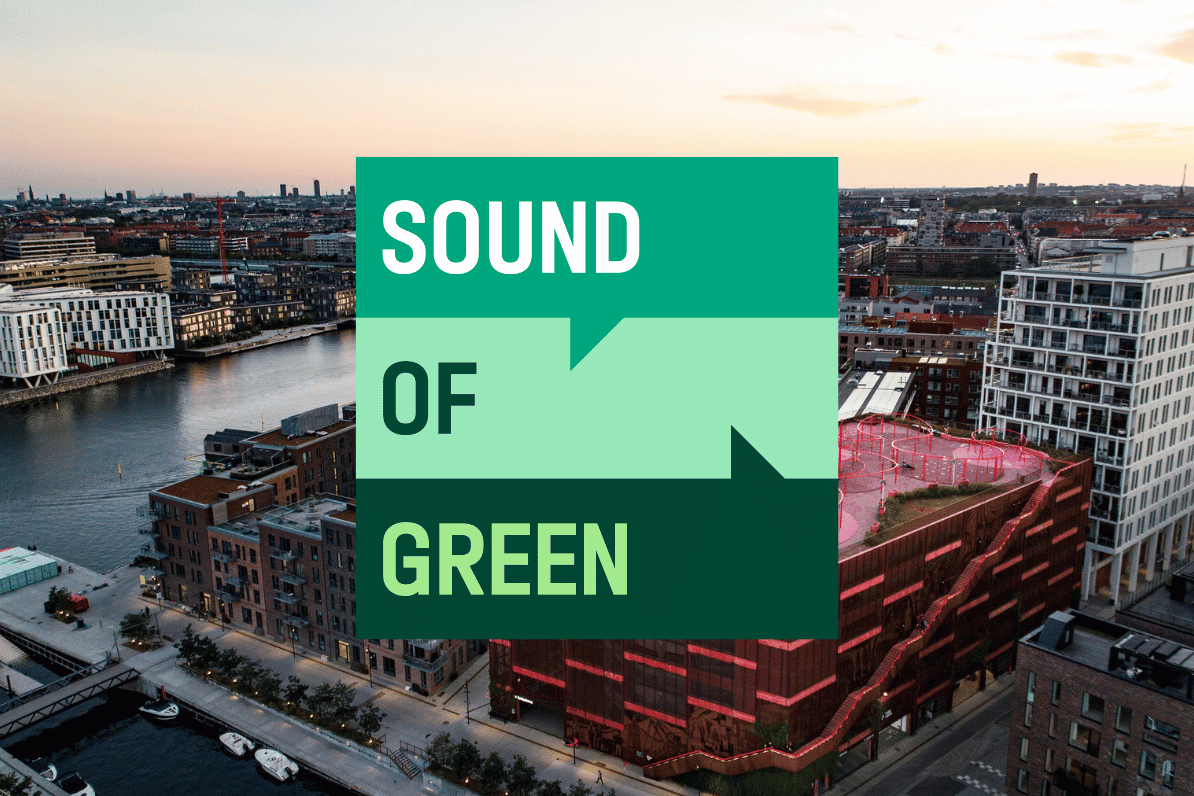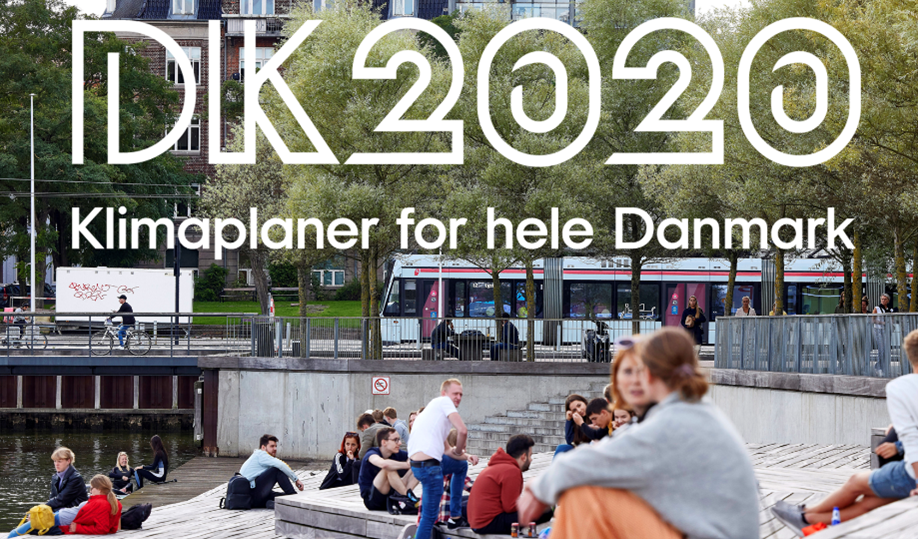Podcast series: Sound of Green
Conveyed in a short, accessible format, Sound of Green is for anyone who is curious about how Denmark approaches climate action. You can find all episodes below or on your favorite podcast app.
ALL PODCAST EPISODESPerspective
Air pollution
Buildings
Climate change adaptation
+10



Conveyed in a short, accessible format, Sound of Green is for anyone who is curious about how Denmark approaches climate action. You can find all episodes below or on your favorite podcast app.
ALL PODCAST EPISODESToday, cities are home to over half of the world’s population and are responsible for 70% of greenhouse gas emissions. As they increasingly grapple with the adverse effects of climate breakdown, cities represent a critical unit to mobilise in the green transition. Yet amidst these challenges, pioneering cities around the world are forging a path towards a sustainable future for their communities and the planet. And Danish cities and municipalities are making historic contributions to that endeavour.
In this episode, you get to hear from Mark Watts from the C40 network, Lord Mayor Sophie Hæstorp Andersen of Copenhagen, Pelle Bournonville from Realdania and Lousie Koch from Grundfos, as we explore how cities are taking the lead in the race to net-zero.
Cities worldwide face mounting pressures, from climate change impacts to growing population demands to strain on essential resources like water and clean air. Thus, it is not hard to answer the question of why focusing on cities is imperative in the green transition. However, there is also another dimension to that question concerning leadership and cooperation
“When you look at a global challenge like climate breakdown the only way it can be solved is by global cooperation and that’s a thing which is in short supply. But one of the the groups consisting of the most powerful leaders in the world have found a way to work together across cultural economic geographic barriers is mayors.”
Mark Watts, Director of the C40 Network
C40 is a global performance-based network of nearly 100 mayors across the world’s leading cities, that have united to confront the climate crisis. As Mark Watts explains, city leadership has proven to be a productive force in the green transition of our societies:
“There’s a lot of competition but it’s a competition of racing to the top as they’re trying to copy the best ideas to make their cities more livable and more sustainable and adopt them. They’re not fighting with each other and they’re certainly not saying, that we are not willing to tackle the pollution in our city unless they tackle the pollution in their city first so that’s the big advantage of working with cities.”
Mark Watts, Director of the C40 Network

The DK2020 and Climate Alliance is managed by the Danish independent green think tank CONCITO who alongside C40 provide tools and knowledge on climate action planning and ensure a consistent level of quality.
LEARN MOREOf the nearly 100 trailblazing cities that are now a part of C40, most of them are so-called megacities – cities that already have or are expected to have a population exceeding 3 million people by 2030. However, smaller cities have also been included in the network and have been recognised as climate innovators. One of the first to do so was Copenhagen.
Despite being one of the smallest cities in the network, the Danish capital has not shied away from big ambitions when it comes to its climate action. At the beginning of the 2010s, Copenhagen made a number of green commitments, including a goal to become the world’s first CO2-neutral capital. This has put the city on a path requiring sweeping holistic efforts:
“In 2012, Copenhagen not only committed itself to a cloudburst plan and to climate adaptation goals, but also to lower our CO2 emissions, our climate footprint, and to be climate neutral in 2025. Since then, we have been working with roadmaps in order to lower our overall climate footprint of the city. First of all we have enhanced the district heating, making the district heating in our municipality green. We have gradually transitioned to renewables and we have also had a focus on transportation and waste management.”
Sophie Hæstorp Andersen, Lord Mayor of Copenhagen and Vice Chair at the C40 Network
With these efforts, Copenhagen has reduced its emissions by 80%. Along the way, Copenhagen’s membership of C40 has been instrumental in ensuring that the city worked purposefully to realise its ambition. As the Lord Mayor states, global cooperation generates the inspiration and resources imperative to making smart choices:
“The C40 mayor network has helped us in Copenhagen to make sure that we did the right measurements, and make sure that we had the right data, that we could compare to other cities globally and internationally. So the things that we are doing are actually helping and being realistic and not only being papers fine words on a piece of paper laying down in the drawer. If you don’t work data-based, it’s very difficult to make sure that you actually do the right thing.”
Sophie Hæstorp Andersen, Lord Mayor of Copenhagen and Vice Chair at the C40 Network
In 2019, the Danish philanthropic association Realdania initiated the DK2020 project with the ambition to accelerate efforts to meet the Paris Agreement at the municipal level. The idea was born out of work that C40 had done to create a climate action planning standard that was compliant with the Paris Agreement.
DK2020 has made Denmark the first country in the world where all municipalities are drawing up climate action plans to meet the targets set in the Paris Agreement. Now, 5 years later, 96 out of Denmark’s 98 municipalities have developed Paris-compatible climate action plans. So, what goes into creating this kind of climate action planning? The DK2020 effort can be broken down into four main components:
“Firstly, comprehensive climate accounting, and comprehensive meaning all significant emission sources accounted for.
Secondly, a quite different way of understanding and tackling the climate threats in terms of developing climate adaptation part of the plan. Many, many municipalities in Denmark have worked diligently with rain as the primary threat and had enormously detailed plans for how to handle extreme rain. Far less so were they working again comprehensively with understanding all of the possible threats.
The third leg is very much this cross-organisational foundation or cross-organisational involvement in the plan development within the municipality. So not just the small climate department and a few directors and maybe a mayor, but really across all of the sort of business areas for the municipality from health and welfare services to youth and education, etc. Building awareness of the individual department’s sort of responsibility for their distinct parts of emissions and threats.
And then finally, you know, consensus and base building with the municipality and all of the other actors, you know, local youth, local populace, and local businesses. Really building alliances and understanding.”
Pelle Bournonville, Special Advisor and Head of Projects at Realdania
Today, all DK2020 partners have extended their commitment until 2027 with the Climate Alliance, a new partnership that supports Danish municipalities to move from climate planning to climate action.
One of the solution providers that has partnered with Danish cities and municipalities in fulfilling their climate goals is Grundfos. Water plays a key role in the green transition of our cities, both in terms of mitigating emissions and adapting our supply and treatment of water to the threats brought on by climate change. It is estimated that the water utility sector accounts for 2% of global carbon emissions. This is roughly the same as the aviation industry.
“Moving and treating water actually takes quite a lot of energy. As we need to move and treat water more for a growing population in a world impacted by climate change, energy-efficient low-carbon solutions become really important.
One big opportunity for carbon emission reductions is in the provision of drinking water or heating, cooling of large commercial buildings or hospitals, where we typically come in with solutions that can help reduce carbon emissions through intelligent pump solutions and water management solutions.”
Louise Koch, Group Head of Sustainability at Grundfos
The cities hold the local knowledge that allows for Grundfos’ solutions to have the greatest possible impact. As such, Grundfos has taken its partnership with cities to a global scale by partnering with C40 and engaging in a global network of cities is incredibly meaningful in terms of developing scalable solutions:
“We come with the technical solutions and the knowledge of water treatment, how to process water, whether it’s for industry or drinking water or cooling or heating in buildings. But of course, the application in a specific context, whether it’s Copenhagen as the largest city in Denmark or whether it’s a small municipality in Western Jutland, that requires the local knowledge. And that’s where it’s important to partner.”
Louise Koch, Group Head of Sustainability at Grundfos
While Danish cities and municipalities certainly do not have all the answers, they exhibit the immense potential and willingness that resides in cities all over the world to spearhead the green transition. Fortunately, their success is freely available for anyone to imitate and elevate.
“I’m not saying that we have found the holy grail, and that our model is the right for all, but there is definitely inspiration to be had. And by all means, you know, as we’ve been preaching to our own municipalities, there are no copyrights on climate action. Beg, borrow, steal, accelerate your work, and show others that you can do them one up. Then everybody wins.”
Pelle Bournonville, Special Advisor and Head of Projects at Realdania
This article is an excerpt of our podcast episode on sub-national climate action and part of our podcast series Sound of Green. Listen to the episode in its entirety on your preferred podcast platform or by clicking below: